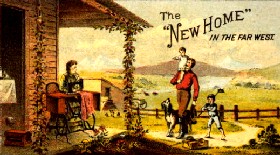It is the first of the month again and so I post in alphabetical order all podcasts I reviewed linked to the last post and relevant labels:
- 12 Byzantine Rulers, history podcast
- Africa (Stanford Travel), geography
- Africa Past and Present, geography
- Ancient and Medieval Podcast, history podcast
- Arizona, University of: Introduction to Language, language
- BBC History Magazine, BBC history podcast
- Bike Radar, tour
- Binge Thinking History, history podcast
- Bioethics podcast, science, law and society
- the Biography Show, history podcast
- Biota Podcast, science
- Bommel Hoorspel, NL radio
- British History 101, history podcast
- Car Talk,
- Celtic Myth Podshow
- CFR Podcast, law and society
- Chronicles Radio Dispatches
- Dan Carlin's Common Sense,
- Dan Carlin's Hardcore History, history podcast
- David Kalivas' World History, history podcast
- Distillations, history podcast science
- the Economist,
- Engines of our Ingenuity, science
- English 117S, language
- Everything Lincoln, history podcast
- Exploring Environmental History, science, history podcast
- F1Cast
- Fresh Air (NPR)
- From our own Correspondent, BBC geography
- Geography 130, geography
- Hank's History Hour, history podcast
- Geography of World Cultures (Stanford), geography history podcast
- Hannibal (Stanford), history podcast
- Haring Podcast, NL radio
- Historical Jesus (Stanford), history podcast יהדות
- History 106B, Berkeley history podcast
- History 167B, Berkeley history podcast
- History 181B, Berkeley history podcast
- History 2311, history podcast
- History 2312, history podcast
- History 4A, Berkeley history podcast
- History 5, Berkeley history podcast
- History 7B, Berkeley history podcast
- History according to Bob, history podcast
- History Network, history podcast
- History of Rome, history podcast
- History of the International System (Stanford), history podcast
- History Podcast, history podcast
- Historypod, history podcast
- Historyzine, history podcast
- ICT Update,
- In Our Time, In Our Time BBC (science) history podcast
- In the Media (WNYC)
- Inspired Minds (Deutsche Welle)
- Interview Vrijdag, NL radio
- Irving Poetry podcast
- ITV, tour
- Jung Podcast, psychology
- KMTT, יהדות
- KQED Forum
- Librivox: History of Holland, history podcast
- Marathon Interview, NL radio
- Matt's Today In History, history podcast
- Medieval & Renaissance Studies Events, history podcast
- Medieval Podcast, history podcast
- Midwest Writer, language
- Military History Podcast, history podcast
- Missing Link, history podcast science
- My Three Shrinks, psychiatry
- Napoleon 1O1, history podcast
- National Archives Podcast, history podcast
- NRC FM,
- Only in America, history podcast יהדות
- Open Source
- OVT, history podcast NL radio
- Oy Mendele!, יהדות
- PACS 164A, Berkeley
- Parnell's History Podcast, history podcast
- Peopletalk's Podcast, history podcast
- Physics for future Presidents, Berkeley science
- Philosophy 103, philosophy
- Philosophy Bites, philosophy
- the Philosophy Podcast, philosophy
- Prosperity show
- Podcasts on Medieval Texts, history podcast
- Podwatch
- Radiolab (WNYC), science
- Rav Dovid's, יהדות
- Redborne History, history podcast
- Rpgmp3
- Sex History Podcast, history podcast
- the Skeptics' Guide to the Universe, SGU science
- Šimek 's Nachts, simek NL radio
- Social Innovation Conversations,
- Sonic Society, creative writing
- Speaking of Faith, יהדות
- Shrink Rap Radio, shrinkrapradio psychology
- Stanford U History, history podcast
- Sunday Sundown
- Talking Robots, science
- TdF London, tour
- Teaching American History, history podcast
- TED Talks, vodcast
- That Podcast Show
- Times Talks,
- Tudorcast, history podcast
- The Word Nerds, TWN language
- UCLA Israel Studies, Israel
- University Channel Podcast, science
- Volkskrant Podcasts, tour
- We the People Stories, history podcast
- What is Judaism?, יהדות
- Wise Counsel, Wise Counsel psychology
- the Writing Show, Writing Show language
- Wynyfryd's meditation room
- Your Purpose Centered Life
- zencast
- zoem, psychology
- האוניברסיטה המשודרת, גלי צה"ל

Thanks in advance,
Anne Frid de Vries (in one word)
AT
Yahoo DOT co DOT uk





